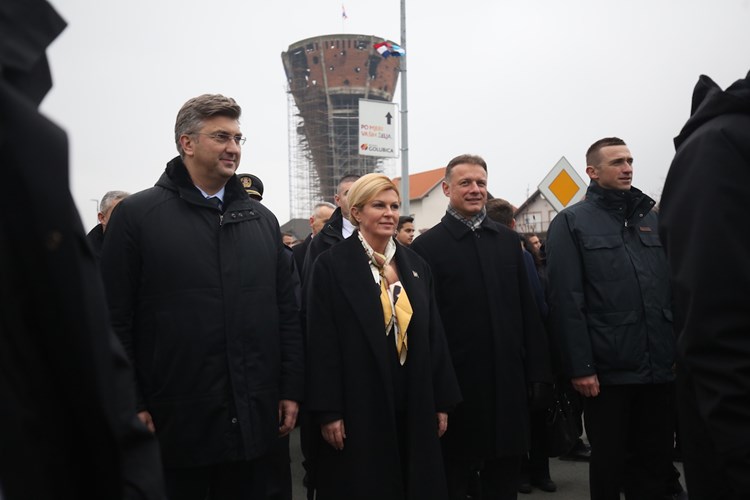


He told reporters a score of concrete conclusions and proposals were adopted at that session to improve the quality of life and the living standards of Vukovar's residents.
He said the Vukovar development fund was mainly intended for the economy, including projects for the water and town infrastructure, and that the government was trying to stimulate the economy through several ministries' measures. He noted that the army had also returned to Vukovar.
Plenkovic said Vukovar was "extremely important" to the government and that he communicated with Mayor Ivan Penava regularly to coordinate activities.
"I believe the score of measures this government will adopt will make it possible for people to stay in Vukovar, but also enable the return of a certain number of people to the town," he said, adding that Vukovar had markedly fewer inhabitants than before 1991.
He said those who gave their lives for Croatia would always be remembered.
"The tragedy that happened then, after nearly 90 days of continuous shelling, attacks, the strongest aggression by Milosevic's Great Serbia regime which led to the big tragedy in the Homeland War, was also, I'm sure, a watershed in the process of Croatia's international recognition and eventually."
After more than seven years, with the peaceful reintegration of the Croatian Danube river region, Croatia completed its territorial integrity and established governance throughout its territory, Plenkovic said.
"That was also an incentive on the country's European path, in the strengthening of our institutions, the integration of minorities into society, and in line with that, after 26 years of commemorating Vukovar's victims, we should continue to build a modern, democratic and inclusive Croatian society."
Text: Hina